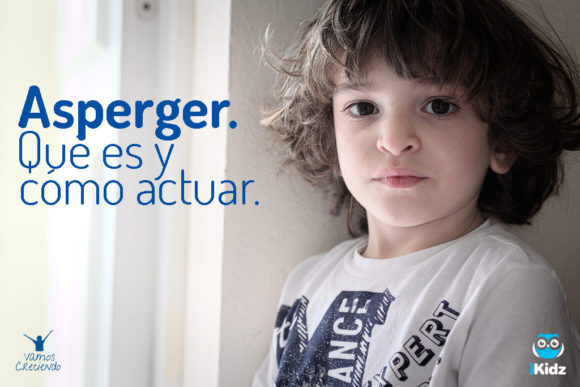This week I decided to write about Asperger or Asperger Syndrome. As you know I am not a psychologist, but I have encountered several cases throughout my career, one of them currently. For this reason, I consider it essential to be well informed, above all, what it is and how we can help our children or students to have a development, both personal and professional, appropriate depending on your needs.
Before getting deep into the subject, it is important that you consider three important points:
- A good diagnosis is essential. If you think your child may suffer from this syndrome, you put not read for free and get carried away by what an acquaintance told you. It is essential that you go to a specialist, to determine whether your child actually suffers from this disorder and to what extent.
- Do not panic! Once you have the diagnosis, first of all, Do not panic. In this disorder there are many levels and each case is different.
- Communication is key. As everything, Communication is key. Speak naturally with your environment, teachers of your small, family, friends, etc., explicadles the situation and how they can help. Among all, conseguiréis sure you make your event a little easier.
What is Asperger?
Asperger's syndrome was recognized by the scientific community (DSM-4: Diagnostic and Statistical Manual), in 1994 and included in 2013 as part of the TEA (Autism Spectrum Disorder). Until then, syndrome used to be considered a condition itself, with its own diagnosis. From that moment, a series of updates were introduced in the DSM-5, changing the classification of Asperger's Syndrome. Present day, children who show signs of Asperger's syndrome are diagnosed with autism and are considered as part of “Autistic spectrum”.
What are the main symptoms of this syndrome?
Let's see a number of general characteristics of this syndrome because, as we have said above, each individual is different Asperger.
- Usually it affects the neurodevelopment of the child.
- We talk about children with normal intelligence, sometimes even above average.
- Possible changes in the patterns of nonverbal communication, It may seem that they are angry, but it's not like that.
- Of particular interest in specific areas. Their interests are often restricted.
- They may have difficulty in interpreting the feelings and emotions, deposit and equity.
- Often they have difficulty in social interaction and relationships, especially in large groups.
- Some aspects of language in which they can present difficulties are the rhythm of conversation, intonation, the timbre of voice and volume.
How to interact and help your child?
Obviously, the main and important thing to do is be patient, but I leave some other tips if you want to help your child.
- Always positive. I think this advice applies to almost everything in life, but in this case, even more. You must always be positive with him, always greet him with a smile, put his height to talk to him, etc.
- Show yourself very affectionate. These children are dependent on many aspects, but they need to learn to be as independent as possible. Much of the success we achieve in the future will depend on how we relate to them.
- clear language, simple and specific. Sometimes, children with Asperger's have difficulty understanding the message being thrown at them. Be concise to prevent the child misunderstand the message that is being sent.
- specific programs. Seek a treatment program or intervention for areas in which your child has more problems.
- Do not forget to speak naturally about what happens. Especially your immediate environment. Surely as parents, I will touch make "trainers" for friends, family, etc.
- Teach your child to listen. These children usually has a lot to hear. also lean on nonverbal communication. It is not a matter of saying things more often, but more clearly.
- Seek activities and programs that you can do together. There are plenty of activities and programs that you can do, not only take your child to a specialist. Make family activities, will come great.
I hope these tips will be useful, whether you have a case at home as if you're a teacher and you have a case between one of your students.
Thanks for being there!
Sources consulted:
https://kidshealth.org/es/parents/asperger-esp.html
http://www.revistaaen.es/index.php/aen/article/viewFile/16863/16733
"There are many ways of being disabled, the only dangerous is having no heart ".
Tags: Students, Asperger, autism, Children, special needs, Children, means



 Español
Español English
English Français
Français Deutsch
Deutsch 中文(简体)
中文(简体) Português
Português
